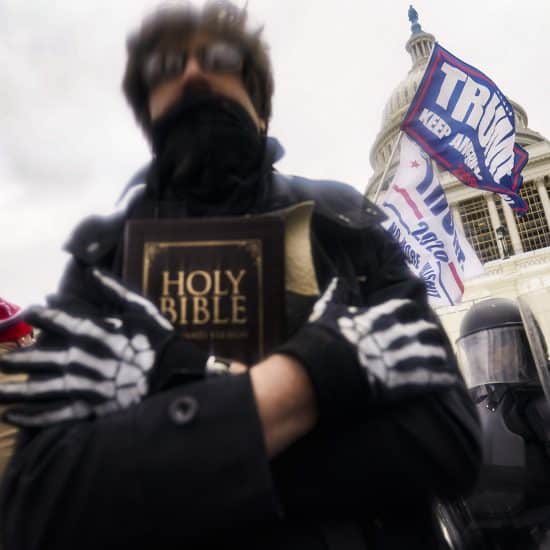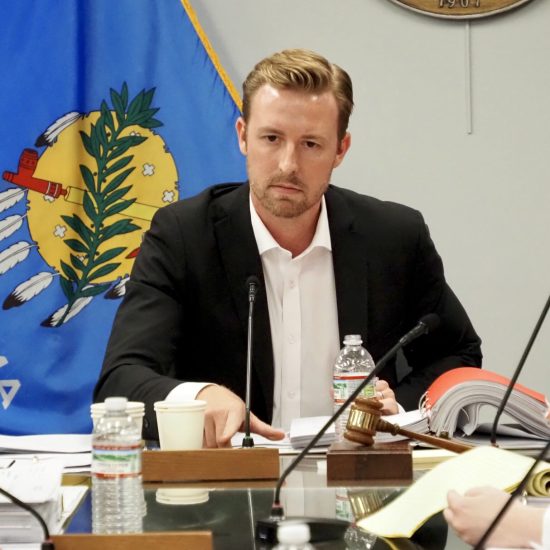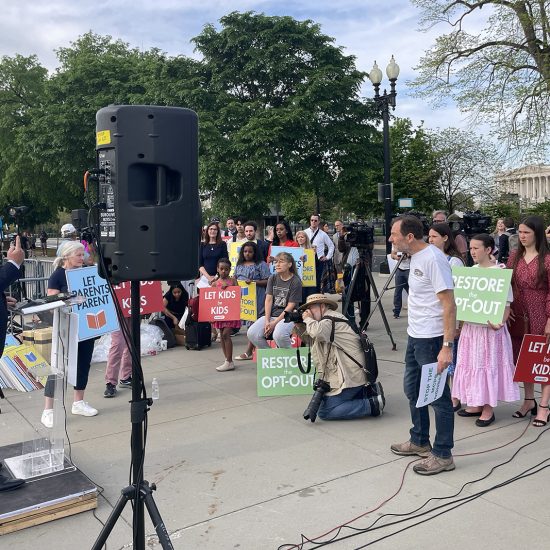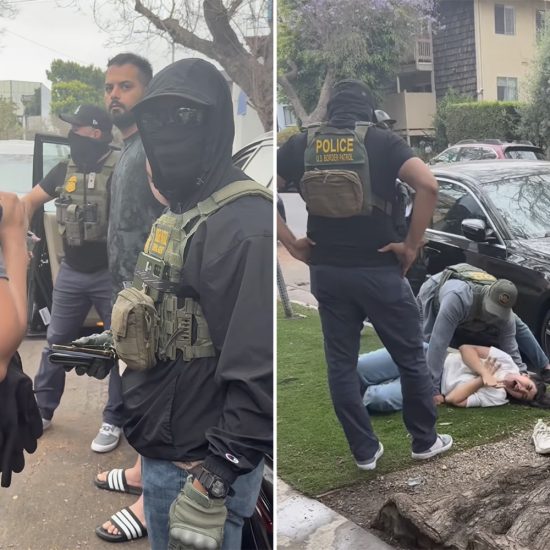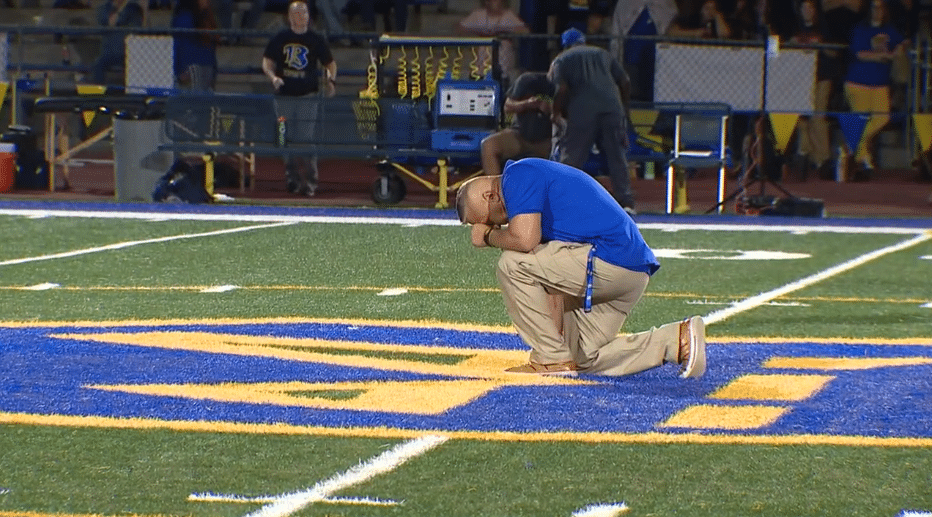
SEATTLE (AP) — A high school football coach in Washington state who won his job back after the U.S. Supreme Court ruled he could pray on the field resigned Wednesday after just one game back.
Assistant Bremerton High School coach Joe Kennedy made the announcement on his website, citing several reasons, including that he needed to care for an ailing family member out of state. He had been living full-time in Florida, and before the first game last Friday he said he didn’t know if he’d continue coaching.
“I believe I can best continue to advocate for constitutional freedom and religious liberty by working from outside the school system so that is what I will do,” Kennedy wrote. “I will continue to work to help people understand and embrace the historic ruling at the heart of our case.”
Kennedy was not immediately available for comment Wednesday. His publicist, Jennifer Willingham, told The Associated Press he was on a plane back to Florida.
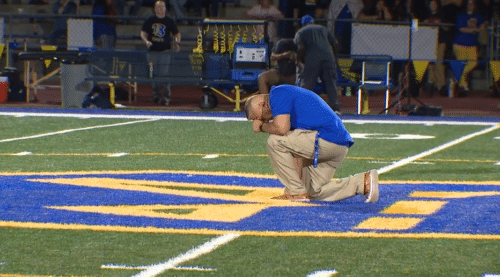
Screengrab as Bremerton High School assistant coach Joe Kennedy takes a knee and prays at the 50-yard line after Bremerton’s win over Mount Douglas in a high school football game at Bremerton Memorial Stadium in Bremerton, Washington, on Sept. 1, 2023. (K5 News)
In a statement, the Bremerton School District confirmed Kennedy had submitted his resignation. School officials declined to comment on his exit, calling it a personnel matter.
Kennedy lost his job in 2015 and waged a seven-year legal battle to get it back.
School district officials had asked him to keep any on-field praying non-demonstrative or apart from students, saying they were concerned that tolerating his public post-game prayers would suggest government endorsement of religion, in violation of the separation of church and state.
He insisted on praying publicly at midfield after games, and the district placed him on leave and declined to renew his contract.
Last year, the U.S. Supreme Court’s conservative majority sided with him, with Justice Neil Gorsuch writing that “the best of our traditions counsel mutual respect and tolerance, not censorship and suppression, for religious and nonreligious views alike.”
Americans United for Separation of Church and State, a nonprofit organization that represented the school district in the case, argued that the Supreme Court should have dismissed the case as moot, as Kennedy no longer lived in Bremerton and had failed to notify the court of his 3,000-mile (4,800-kilometer) move to Florida.
“That Kennedy doesn’t want to coach at Bremerton School District isn’t a surprise,” said Rachel Laser, the group’s chief executive. “It’s just one more example of why the Supreme Court should not have taken this case in the first place.”
Kennedy was back on the sideline for the first time in nearly eight years last Friday night, but he said beforehand that he had mixed feelings about it and wasn’t sure he’d keep coaching.
“Knowing that everybody’s expecting me to go do this kind of gives me a lot of angst in my stomach,” Kennedy told the AP. “People are going to freak out that I’m bringing God back into public schools.”
After the game — a 27-12 win over visiting Mount Douglas Secondary School — Kennedy strode alone to midfield, then knelt and prayed for about 10 seconds.
Kennedy was not joined by any athletes or others on the nearly empty field. There was scattered applause from the modest crowd.
Kennedy’s fight to get his job became a cultural touchstone, pitting the religious liberties of government employees against longstanding principles protecting students from religious coercion. He appeared at a 2016 rally for Donald Trump.
He and his wife recently had dinner with Florida Gov. Ron DeSantis, a GOP presidential hopeful who asked for his help on the campaign trail. Kennedy declined, saying he’s loyal to Trump.


